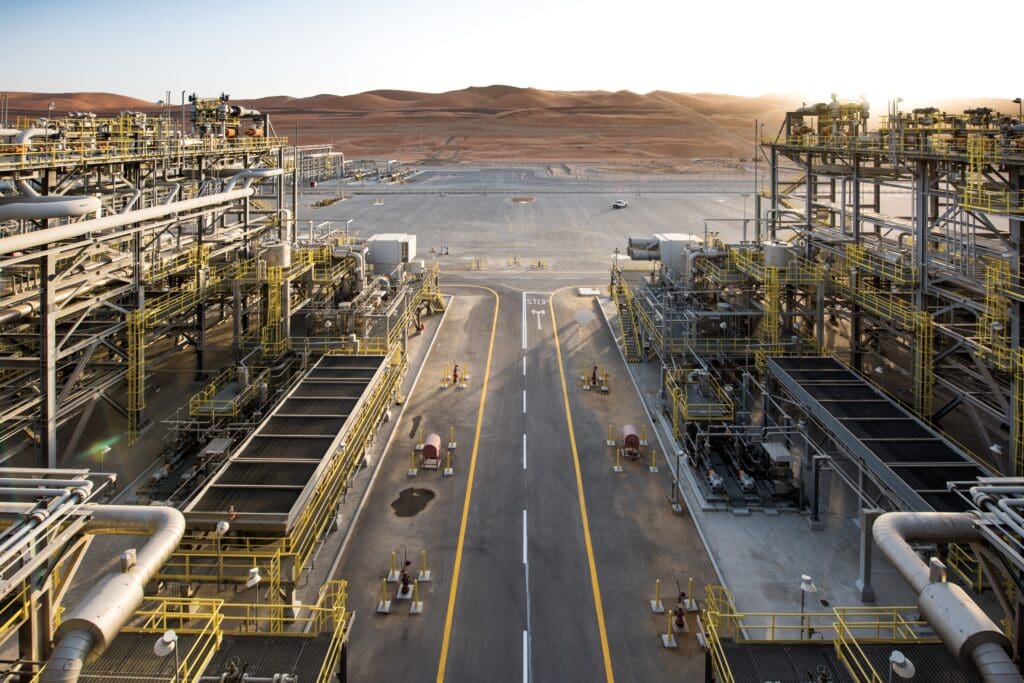As the global energy transition progresses, hydrocarbons are no longer judged solely by their cost or availability. Increasingly, they are judged by their carbon footprint throughout the entire value chain. This raises the question of who defines, measures and certifies that footprint. Indeed, carbon certification is emerging as a battleground that will set the parameters of the global energy trade, finance and geopolitical influence. In the near future, the structural dynamics of the market, such as how much natural gas a country produces and exports, will be less important than the carbon footprint of those cargoes, how it is assessed and by whom.
For major Gulf energy producers such as Qatar, Saudi Arabia and the United Arab Emirates, the issue is urgent: unless they engage proactively to define the future (and metrics) of carbon standards, they risk becoming price-takers—not just for commodities, but for climate credibility itself. In such a future, upstream sovereignty will no longer be a question of control of resources, such as that which gave rise to OPEC or the resource nationalism that underpinned decolonization during the mid-20th century. Rather, true influence will be about creating the rules that govern the global economic architecture, defining who holds the authority over value creation itself.
Fragmented Standards
The global drive toward decarbonization is no longer focused solely on reducing aggregate emissions. Instead, it is evolving toward a much more politicized—and much more strategic—contestation over which fuel sources give rise to those emissions, and how they should be measured, certified and taxed.
Mechanisms such as the European Union’s Carbon Border Adjustment Mechanism (CBAM), which came into effect in 2023, are early examples of this trajectory. While CBAM is initially targeting high carbon intensity sectors such as steel and cement, it is very likely that carbon-related tariffs and certification demands will escalate and extend into energy markets, including liquefied natural gas (LNG), hydrogen and, eventually, oil. In tandem, new layers of regulatory pressure points are emerging: EU methane intensity rules; shipping emissions standards through the International Maritime Organization; EU carbon pricing; and the EU’s Corporate Sustainability Due Diligence Directive (CSDDD), which mandates that companies ensure their supply chains are free from forced labor and environmental harm. Together, these frameworks are reshaping the rules of global trade and demanding ever more rigorous certification and compliance from energy exporters. In Asia, some of the world’s largest LNG importers are beginning to demand detailed cargo-level carbon certification.
As yet, however, there is no unified global standard for what counts as “low-carbon LNG,” “low-methane gas” or “clean hydrogen.” The rules are being written piecemeal, often without the participation of, or consultation with, the major Gulf energy exporters.
This fragmentation poses significant risks for Gulf producers. Without harmonized global standards, exporters may find themselves caught in a patchwork of conflicting certification regimes. This would compel them to tailor shipments to meet every shifting national requirement—raising costs, reducing flexibility and ultimately eroding their market competitiveness. Gulf hydrocarbons, ever the boogeyman in international climate negotiations, could even be labeled as “dirty” simply for lacking a recognized certification, even if their overall emissions are relatively low.
In an age of growing economic protectionism, little consideration is being paid to how carbon certification can become a non-tariff trade barrier, potentially locking Gulf exporters out of premium markets or subjecting them to punitive taxes and fines.
In such a system, value is no longer solely determined by what is extracted, but by what is validated at the point of purchase. Despite their major investments in carbon capture, methane abatement and blue hydrogen, Gulf energy producers could still lose market access if they fail to control, or at least co-author, the standards that judge their products.
International oil companies, such as Shell, TotalEnergies and BP, have already recognized this reality. They are moving proactively to construct internal certification frameworks, deploy low-carbon cargoes and align early with developing European regulations. The aim here is not merely to comply but to influence how compliance itself is defined, ensuring that they retain maximum flexibility and premium market access.
By contrast, while Gulf energy firms such as Qatar Energy and the Abu Dhabi National Oil Company (ADNOC) are investing in carbon mitigation, they appear less active in defining the emerging certification regimes that will ultimately determine how those investments are valued globally. Rather than decarbonizing value chains, these firms need to bring the very metrics of carbon integrity—accountability for accurate carbon data, traceability and transparency—under their control to the greatest extent possible.
The Gulf’s economic future depends on such a shift from reactive compliance to proactive influence over certification rules.
Rather than merely responding to frameworks developed in far-flung jurisdictions, Gulf producers would benefit from co-developing certification bodies and standards—especially in coordination with key Asian buyers, who have an interest in pragmatic, objective and flexible standards that recognize natural gas as an integral part of this transition, rather than an obstacle to it.
Additionally, while there are regional efforts to develop standardization for various other industries, the Gulf would benefit from leading efforts to establish much more hydrocarbon-focused benchmarks. These could take the form of a “Gulf Carbon Certification Authority” or an “Arab Low-Carbon Energy Standards Platform,” crafting regionally and globally recognized benchmarks for low-carbon LNG and decarbonized oil products. Such institutions would serve to ensure that Gulf hydrocarbons are evaluated and measured fairly, while providing a negotiating platform when engaging with European, Asian and other customers.
Critically, certification sovereignty would also allow Gulf states to defend the role of natural gas in the energy transition narrative, which is increasingly coming under pressure at international climate forums. Without such efforts, externally imposed narratives may increasingly frame all hydrocarbons—regardless of their real-world emissions intensity—as obstacles to climate change mitigation, which must be priced out of existence.
Writing the Rules
The Gulf states’ financial resources, technological investments and diplomatic muscle grant them the ability to lead—providing they act now on three immediate priorities:
First, the development of certification partnerships with large importers, such as Japan, Korea, India and China, to co-author carbon standards aligned with energy realities and Gulf national interests would be an extremely important initial stage deployment. Second, the establishment of a trusted and transparent regional infrastructure that has at its core measurement, reporting and verification (MRV) systems anchored in Gulf institutions and Arab knowledge would be key. And third, it would be beneficial to frame the Gulf’s hydrocarbons not just as cleaner and more environmentally friendly, but as a certified contribution to global decarbonization efforts.
These steps would allow Gulf countries not only to secure continued access to global energy markets, but also to position themselves as indispensable architects of the new energy order.
In the age of carbon accounting, whoever writes the standards controls the flows—of energy, capital and global influence. Yet in the Global South, and particularly in the Gulf, the discourse remains focused on controlling resources and market share or expanding downstream value chains. Almost no attention is paid to writing the rules of the game itself, shaping the standards, certifications and frameworks that determine global value and access. If the Gulf aspires to be a true zone of value creation, rather than merely an exporter of commodities into systems defined elsewhere, a conceptual revolution is necessary.
True upstream sovereignty lies not merely in the management of resources, but in the capability and will to write the standards that govern the lifeblood of the global economy. For Gulf policymakers, the existential question is no longer whether to adapt to climate transition pressures. It is whether they will shape the metrics that define success or be shaped by them.


